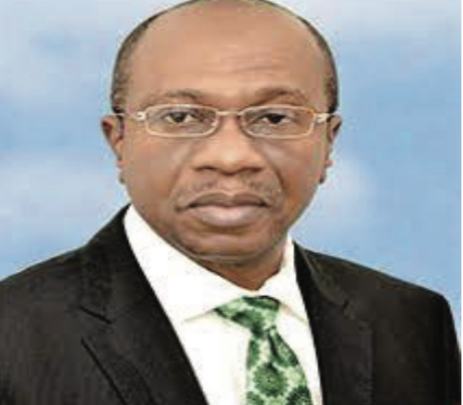Incredibly shrinking Nigeria

How do we tell our children that this Naira, which is fast crashing into worthlessness,
exchanging at over 500 to the dollar, was once a strong currency which people were
proud to hold and foreigners easily accepted for payment?
If I tell them that while I was a student at the University of Lagos in the early 1980s, a
rebate air ticket to London, bought right there at the travel agency in front of El
Kanemi Hall, cost N60 (Yes, about 40% the cost of a bottle of coke today), what
would they say? And of course, a Nigerian didn’t need a visa to go to the UK then.
If I tell them that most of our siblings that went to school in the UK and the US had
their school fees and upkeep paid by our parents from Nigeria, would they believe?
Yet, I used to follow Chike Enigwe to Nnamdi Azikiwe Street, by Tinubu Square in
Lagos to meet a certain man to whom we paid naira and he would arrange dollar
payments for Chike’s elder brother. Their dad, an Onitsha merchant extended
financial care from this Nigeria. Many of his mates did too.
If I tell them that at that point, a dollar was just seventy-five kobo – less than one
naira – would they believe? (Pray, who can work out the percentage change
between then and now?)
What if I tell them that in 1973, a cousin of mine was given out in marriage, and the
dowry was N200. We felt so cool – which other girl in the neighbourhood attracted
that much dowry? How do I explain it, this N200 that buys just a bottle of coke now?
How do I explain to them that my school fees at Unilag from the early to mid-‘80s,
was N9.10 per session? That with N20, I would buy meal tickets that would last over
a month? That when my allowance came from my mum, I would drink beer with my
friends, at about 75k (N0.75) per bottle?
What if I told them that champagne and foreign wine and beer were the standard
fare at parties in Lagos and elsewhere? How would I explain that adults washed
grease from stewed and barbecued beef off their hands with champagne?
Won’t they stone us for frittering away what should ordinarily be their illustrious
heritage? If they hear that Singapore, Malaysia, South Korea, South Africa etc were
behind Nigeria, this very same Nigeria, on the development index some 50 years
ago, what would they say to us?
Some of them have heard. And they have been kind enough not to sweep all of us
elders into some quarantine of an old home or find us some spot in Sambisa forest.
While most of us were not part of the leadership that brought us to this sorry pass,
we were at least part of the picture. If we didn’t like the direction we were headed, we
didn’t push hard enough for a change of course, our children would tell us.
To an extent, that would be true. The outcome which we see today, condemn us. But
it wasn’t because we didn’t try.
At Unilag, I participated in all the protests that came up, right from Shagari’s move to
privatize the Nigerian Ports Authority (NPA) to the SAP riots of the Babangida days.
With the benefit of hindsight, we were right in most of our positions, opposing the
government.
If the NPA had been privatized, by the rules of crony capitalism (which still pervades
the country, 37 years after Shagari), it would have gone to a patron of the ruling
National Party of Nigeria (NPN) directly or by proxy. Scandal-ridden as it is, the
NPA still remains a major source of revenue to the government (possible next to the
NNPC). The size of graft the immediate past managing director, Hadiza Bala-
Mohammed is accused of gives an idea how much the agency would turn in if
somebody in the mould of Prof Is-haq Oloyede were there.
On the Structural Adjustment Programme (SAP) which the Babangida government
hung upon the nation at the behest of the International Monetary Fund (IMF), we the
students and a majority of Nigerians opposed the move. A major plank of the
programme was the devaluation of the naira. That was how we got on the road to the
free-fall of the national currency, such that today we tell our children a story that
sounds incredulous that the dollar used to be less than one naira.
The marketers of SAP put forward the argument that a devaluation of the naira
would make our exports cheaper and the nation would have more foreign exchange.
But we stood with those that pointed out that our export products comprising primary
commodities like crude oil, cocoa and palm oil, had inelastic demand – nobody
would buy more of them just because Nigeria devalued. And Nigeria’s industrial base
was very fragile, depending almost totally on foreign markets for machines, spares
and even raw materials.
Babangida took us down that road willy-nilly. Thirty-five years down the line, we are
still waiting for the harvest of foreign exchange that was touted in marketing SAP.
But this column will not be the book of lamentations about the past that has gone
awry. The past simply helps us to understand the present. Knowing where and how
we veered off-course would help us retrace. Over the next weeks and months, we
shall interpret the present in the light of the past and see how it helps our
understanding.
